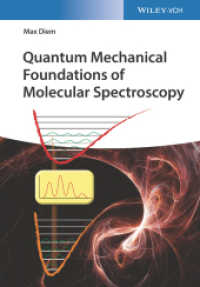- ホーム
- > 洋書
- > 英文書
- > Science / Mathematics
Full Description
The past two decades have seen a remarkable broadening of interest in global warming from a research concern on the part of a limited number of scientists to a political problem on a worldwide scale.







